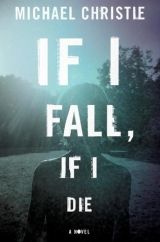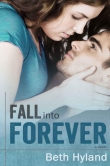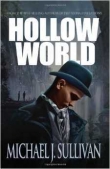
Текст книги "If I Fall, If I Die"
Автор книги: Michael Christie
сообщить о нарушении
Текущая страница: 20 (всего у книги 20 страниц)
25
Jonah had once told Will that if you drop a penny off a high building, like the ones in real Toronto or New York, it ends up falling so fast it can zip right through a person’s whole body from skull to feet before driving itself six feet into the pavement. Will took this bit of magic to mean that his mother was sort of right: everything was dangerous if it falls for long enough, even the littlest things. Will knew now that the worst calamities that happened Outside were unremarked, things that nobody noticed, like Icarus plunging into the water, or children who went missing without a soul looking for them. Outside was still chock-full of questions Will couldn’t answer, like how his uncle Charlie got the way he did, or his mother, or why Angela was doomed and other girls weren’t, or what had made Marcus push the Butler as brazenly as he did. And even though in the end Will hadn’t solved its mysteries, he still loved the Outside so intensely that he worried he could die of it.
According to the Turtle Brothers, Constable MacVicar never did make it down to the harbor to arrest Butler and Claymore where they’d left them, and nobody ever found all the Butler’s Neverclear. The rumor was that after they were through with him, whatever malevolence that Titus said had overtaken the Butler when he was hit by that loading boom had been reversed, or at least muted. They heard he dismantled his operation, and the following summer Jonah and Will saw him once while skateboarding near the harbor. He was wearing slippers on the sidewalk, staring blankly into the window of a vacant store, now just another of the damaged faces that the boys rocketed past. In Will’s “bullet ballets,” they always caught the criminal boss last, but seeing how the Butler didn’t exactly fall into that category, Will supposed that in the story of him and his mother, the real Outside bad guy was harder to pin down and definitely wasn’t something MacVicar could lock up in jail.
For a while Will had difficulty believing that Titus was his uncle. His mother said that it was actually some friend of theirs named Whalen who’d died in the accident at the elevators, not Charlie, but it made little sense to Will. Maybe it was because he’d never had any family other than his mother, so it wasn’t easy to scrounge up a room for Charlie in his mind. Will had already stuffed it with so much since he’d left the Inside, the whole family thing would have to wait until free space became available. Still, Will liked having him around. Somehow Charlie made the Inside fuller, less claustrophobic.
At his mother’s request, Charlie had moved into Toronto, where they set up a suite for him, at first so he could heal the three broken ribs that Claymore had given him with his shovel. But after that, he stayed. The basement wasn’t called Toronto anymore either. Now they called it “the Apartment,” or sometimes his mother called it “Charlie’s Crypt,” except never in front of him.
Charlie brought along his furniture from the workhouse, and Will’s mother had even started going down into the basement again. She and Charlie would sit at an old table where they’d drink tea and play cards for dirty pennies. Will often heard them laughing exactly the same laugh and remembering a million things from when they were young. Will and his mother ordered Charlie a water cooler that they could hear gurgling all the time like a big underground stomach. Now that he wasn’t in the elevator huffing grain dust and living on birds, his breathing had improved, and he was making more sense. When he read books to Will, what he said seemed more like something that a person could’ve written.
But it wasn’t all perfect. Sometimes Charlie didn’t come upstairs for weeks, which, for their house anyway, wasn’t overly unsettling. That is, until he’d start claiming items in their basement were trying to suffocate him, and he’d send up paranoid screeds scrawled on scraps of Will’s old masterpieces. Once Charlie dismantled the furnace in the dead of winter because it was recording his thoughts and sending them through the air ducts, pouring some kind of poison gas into their bedrooms that could hurt Will and his mother. But most of the time he was all right. In the spring, he used a net to pull hundreds of smelt from the creek, which stunk up the house when he fried them whole on his hot plate. In summer, he and Will built a new fence in the backyard, sinking the four-by-four cedar posts deep into the soil with a giant corkscrew that Charlie could turn one-handed. On the weekends he went off to collect cans and things he’d fix up, like radios and tools nobody wanted. Charlie had also put up some birdhouses he built near the fence, but whether they had traps in them was one of those things the family didn’t talk about, like how the Black Lagoon used to be. But when Will woke in New York in the morning, where he had a proper bed and even a dresser now, along with the soothing gurgle of the creek, Will heard the music of his uncle’s birds and it always made him feel like going Outside.
His mother still got the Black Lagoon—that didn’t go anywhere—but after she’d rescued him at the elevator it was like somebody had permanently turned down the volume. Will liked to imagine that her bravery that day had built at least a bit of a callus between her and the Outside. She was baking bread in the oven, into which she’d put a large flat stone Charlie had pulled from the lake. She even called her fear the Black Lagoon now, which always made him laugh, like when she swore, which sounded overdubbed and fake. Will and his mother went on a short walk once per week, lazy jaunts around the neighborhood, walking slow and careful under the trees, during which the sunlight went wild in her hair as if it were made of fiber optics, and Will held her hand, not because she needed it, but because it felt good.
Once during their walk Will asked what it was like having her brother back. “He’s completely different,” she said. “Yet he’s the same. But watching the people you love get hurt is part of the deal, I’m learning. That’s the mistake I made with you, honey. And somehow, despite getting hurt, Charlie managed to hold on to the kindest parts of himself. It’s the only way we can survive what the world will do to us.” When she saw him losing interest, she finger-poked his ribs. “But the good news for you is: he’s very brave about changing lightbulbs.”
Another time they walked all the way to a thrift store, where she donated her old Relaxation Machine. “I’ve got a new one,” she’d said to the clerk, patting the Bolex that now hung constantly at her side, which she’d bring on their walks to shoot things that caught her interest. After that, Will urged her to venture again outside their neighborhood, downtown, or the culvert again, but she refused. “Trust me,” she said. “Our street is enough danger for me.” So he let it drop. They were going to Toronto on an airplane for something to do with her films the following fall, so he’d just have to trust her.
People Outside say someone is “losing it” when they get scared, but Will wasn’t so sure. It was more like his mother had been securing something during all that time Inside, clutching at it, like those people on TV stuck in a blowing tube, trying frantically to catch the money fluttering around them, except the bills were actually pieces of her. Even though it didn’t look pretty, from now on Will had to trust that she’d catch at least a few of them.
Jonah did get sent to Templeton, but he and Will were going to the same high school next year if he kept his marks up, so it wasn’t the end of the world. By now Jonah could recite his medical books backward, but Will hadn’t told his mother yet that they were both taking a year off after grade twelve to move to real San Francisco and skateboard professionally for a year before Jonah started med school. Will hoped for her sake that the Black Lagoon would be gone by the time that happened, but if it wasn’t, she’d have to build some more calluses.
Angela was doing better, and Will often skateboarded to the hospital for visits. When her breathing permitted, they’d wedge the door of her room shut with one of her vibration machines and lower her bed flat. Then Will would take off his shoes, and they’d lie for a while and kiss and clamp their pelvises together and stroke each other’s hair while listening to the whooshing and beeping of the hospital.
All that summer, Will and Jonah filmed themselves skateboarding with the new Bolex they earned working for Titus. They met some other skateboarders downtown who’d ventured forth from their own neighborhoods and driveways: a Chinese kid who bruised easily and had to hide both his bruises and his skateboard from a strict father who taught chemistry at the college; an only-child girl whose father was the city’s best hockey coach; a motor-mouthed Irish kid who used to be a soccer prodigy but quit when his mother died, Even the Belcourt Twins had returned from up north and somehow had acquired skateboards, though they were more interested in opportunistic mischief and hash smoking than doing actual tricks. But despite their outward differences, Will had observed that skateboarding was a contagion a certain species of kid was susceptible to. That they’d all had something go wrong in their lives: divorces, deaths, diseases, deficiencies, accidents, nutty relatives stuffed in a basement somewhere—expectations that didn’t fit reality; dark, unplanned swerves of fate; falls their families had taken. Each kid with their own personal Black Lagoon that skateboarding somehow rendered less terrifying.
Will and Jonah were by far the best skateboarders in Thunder Bay, which wasn’t saying much, but it was something. Though Will could see the true reverence the others reserved for Jonah. The way their jaws loosened as they looked at him sidelong. The way they sat down when he arrived, embarrassed they didn’t move with anything close to his exactness and grace. While Will’s style was jerky—he did strange things with his right hand, an involuntary bird claw with the fingers—Jonah was ever more elegant, languid, full of feline poise, all lithe power and confidence. He sizzled down Thunder Bay’s rough streets like water poured over hot rocks, skating with a complete, evident joy—a free person, open to the air, unleashed upon the world.
Will often dreamed of what a skateboarder Marcus would’ve been if he’d stuck with it. His low center of gravity, his quick reflexes, his pure abandon and clever, resourceful mind. He would’ve been incredible, maybe even better than Jonah, like a comet streaking across the city. Will’s one hope was that there were skateboards wherever that lakeboat had brought him, and some other fearless, lost children for him to ride them with.
When summer was over, Jonah and Will sent their footage away to be developed, and to their astonishment most of the reels came back usable. After a tutorial from his mother, Will threw himself into editing, using her old dusty machine that spliced and taped the clips together. Will began with the skateboarding footage, cutting the usable clips in which they actually landed their tricks into one pile, and placed their more gruesome falls into another, including the one where Will hit the ground so hard both his shoes flew off and Jonah’s near castration on a handrail a month earlier. The rest of the footage he put in a box in Toronto.
Since it only added up to a few minutes, he cut other clips he’d shot (he’d got the idea from his mother’s films, which he’d finally watched and found unnerving and occasionally beautiful, even though nothing happened): interactions with people on the streets of downtown, clips of buses and seagulls and bright-yellow fire hydrants, shots of Angela grinning in her hospital bed and decrepit old Pool 6 guarding the lake. He even put in a flash of Charlie’s hardened face—the only time he’d ever allowed Will to film him. When it still didn’t feel substantial enough, Will cut up films he used to watch when he was Inside, including the scene of the Creature swimming inches beneath the unaware woman in the Black Lagoon, and distributed these randomly throughout. For the last scene, right after Jonah rolled away from the handrail he’d miraculously slid, a feat so impossible and precarious it still seemed like special effects, Will inserted the shot where the front of a barn nearly fell on Buster Keaton, his tiny body narrowly passing through the open window, unharmed, cyclones swirling around his unconcerned face.
“I love all the other stuff you put in there,” Jonah said when he saw it. “Makes it more arty.”
“You don’t think it’s too weird?” Will replied. “Like it should just be skateboarding and that’s it?”
“No,” Jonah said, “it’s a masterpiece,” and Will gave him a shot in the shoulder.
For his thirteenth birthday, Will asked his mother to watch it. He dragged the card table into Cairo and set up the old projector on it.
“This is going to be radical,” she said, winking when she came in and sat down with a mug of black tea.
“Please don’t say radical ever again,” said Will.
“I was quite radical when I was young,” she said, with a mock scowl and a fist raised straight in the air, fingers forward, thumb tucked inside.
“I’m going to have an aneurysm,” Will said, as he attached the take-up reel to the projector and started winding it manually, so it wouldn’t break the fragile, hand-edited strip.
“What’s this feature entitled?” said Titus, from the doorway in his fur-trimmed parka, though it was late summer.
“It’s called: If I Fall, If I Die,” said Will.
“Doesn’t leave much to the imagination,” said his mother.
“Jonah thought of it,” Will said. “It’s because we put our worst falls in there, too, along with all the tricks we ride away from.”
“But why put the falls in?” his mother said. “I thought movies like these were made to convince people that you’re an expert. To get sponsored? Right?” Whenever his mother talked about skateboarding, it made his neck shrink like a salted slug. It remained the only Outside thing he hoped she’d never understand.
“Because falling is a part of it,” Will said. “We don’t want to lie and make it look like we don’t fall. Because we do. All the time.”
Will flicked on the lamp and sharpened the focus.
“I believe this is going to be a spritely rollerboarding presentation,” said Titus, sitting down with a bowl of some viscous black soup he’d made steaming in his lap.
Then Will went and killed the lights. From across Cairo, Will watched them sitting together on the couch, two heads silhouetted, his mother and his uncle, the last surviving Cardiels, their little clutch of busted souls, almost enough to call a family.
“But promise you won’t cover your eyes,” Will said, his hand on the projector. “Remember when you said you’d watch The Creature from the Black Lagoon on my birthday?” Will said, trying to maintain a joking tone. “We all know how that turned out.”
The air turned tense. His mother sat staring at the projector’s white light, where a hair was magnified to garter snake size on the wall. She was about to say something, then held it, and then let it go. “I can cover my eyes if I want to, Will,” she said. Even in the dark, he saw the Black Lagoon’s ripple in her jaw, though only a twinge.
“Not for this movie,” Will said. “With my movie, I make the rules.”
She took a deep breath in the careful way that seemed as if she normally breathed some other substance, but this one would do. “All right, Will,” she said.
Then she reached up and propped her eyelids open with her fingers, exposing a lace of red vein surrounding the green marble cores of her eyes.
“You can start it now,” she said. “I’m ready.”
As he watched the specters of his film flicker over their similarly constructed faces—his mother steeling herself against the bracing vision of her only beloved son crashing down staircases and hurtling unprotected through the sharp and dangerous world as Titus’s eyes went wild with some delight not necessarily attributable to what befell the screen—Will considered how, more than anything else, the Outside had taught him that there wasn’t much difference between loving someone and being afraid of them. Loving a person meant needing them to stay: alive, around. But the shadow that love can’t help but cast is fear: fear they won’t stay alive or around—fear they’ll be reckless, or doomed, or just walk away and not consider you ever again. With love, you’re scared it will disappear. With fear, you’re scared it never will. The trick, Will understood now but would never quite manage to put into practice, was getting used to both of them at the same time. It was living in between.
Acknowledgments
Immense thanks to: Bill Clegg; Zachary Wagman, Sarah Bedingfield, Molly Stern, and everyone at Hogarth and Crown; Anita Chong, Ellen Seligman, and everyone at M&S; Laura Bonner, Chris Clemans, Jason Arthur, Scott Pound, David Peerla, Amy Jones, Neil McCartney, Alexander MacLeod, Alexander Schultz, Jane Warren, Francis Geffard, Jackie Bowers, Arnie Bell, Shayne Ehman, Jean Marshall, Christian Chapman, Socorro Woodman, Rick McCrank, Dylan Doubt, Benji Wagner, and Eric Swisher; the Ontario Arts Council, particularly the Northern Arts granting program; the Canada Council for the Arts; everyone at the Thunder Bay Art Gallery; Lakehead University, including its Northern Studies Resource Centre; and David Christie and Jason Christie.
And to Cedar, August, and Lake, who make me brave enough.
And to Linda Christie, who taught me to love the Inside, and who lives Inside me still.








